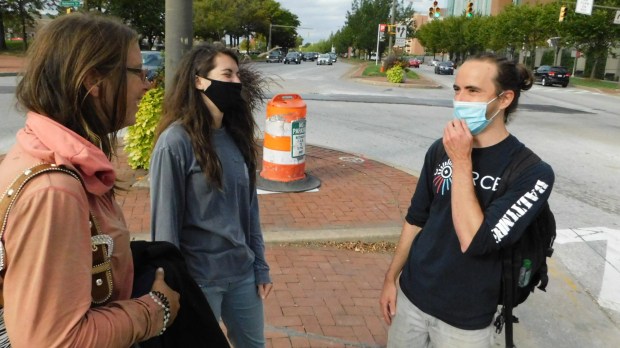Even as the light at the corner of Martin Luther King Jr. Boulevard and Mulberry Street turned red, a couple of cars sped through the intersection. But as others came to a stop, Charley walked along the center island, holding a cardboard sign and peering into the window of the four or five closest cars. One person offered a brief sympathetic half-smile, while the others stared straight ahead. Or continued a text that was probably begun at the previous light.
Charley was getting hungry, but this was one of the busiest times of the day. It was better to hold off and take advantage of the high traffic volume.
Then he caught sight of a couple of friends walking down Mulberry. As they crossed the boulevard, he heard Colin call out, “Hey Charley, how’s it going?”
Colin and Abby were some of Charley’s most regular friends — people he’d see a couple of times a week, at least.
“You need any water or socks, Charley?” Colin shouted out. Charley accepted a bottle of water and took a few minutes to chat with the two. He knew they were relatively new in Baltimore and wanted to make them feel welcome. He knew they had a lot of concern for him and other people who are out on the street.
Colin Miller, 29, a Maryland native, and Abby Steele, 23, of Virginia, are two of the five “urban missionaries” based at the Basilica of the Assumption, several blocks to the east of here. Two young men live in a former convent behind the basilica, and three young women live in a nearby apartment. All five come together each morning for prayer and Mass, spend time in Eucharistic adoration, study, and formation classes.
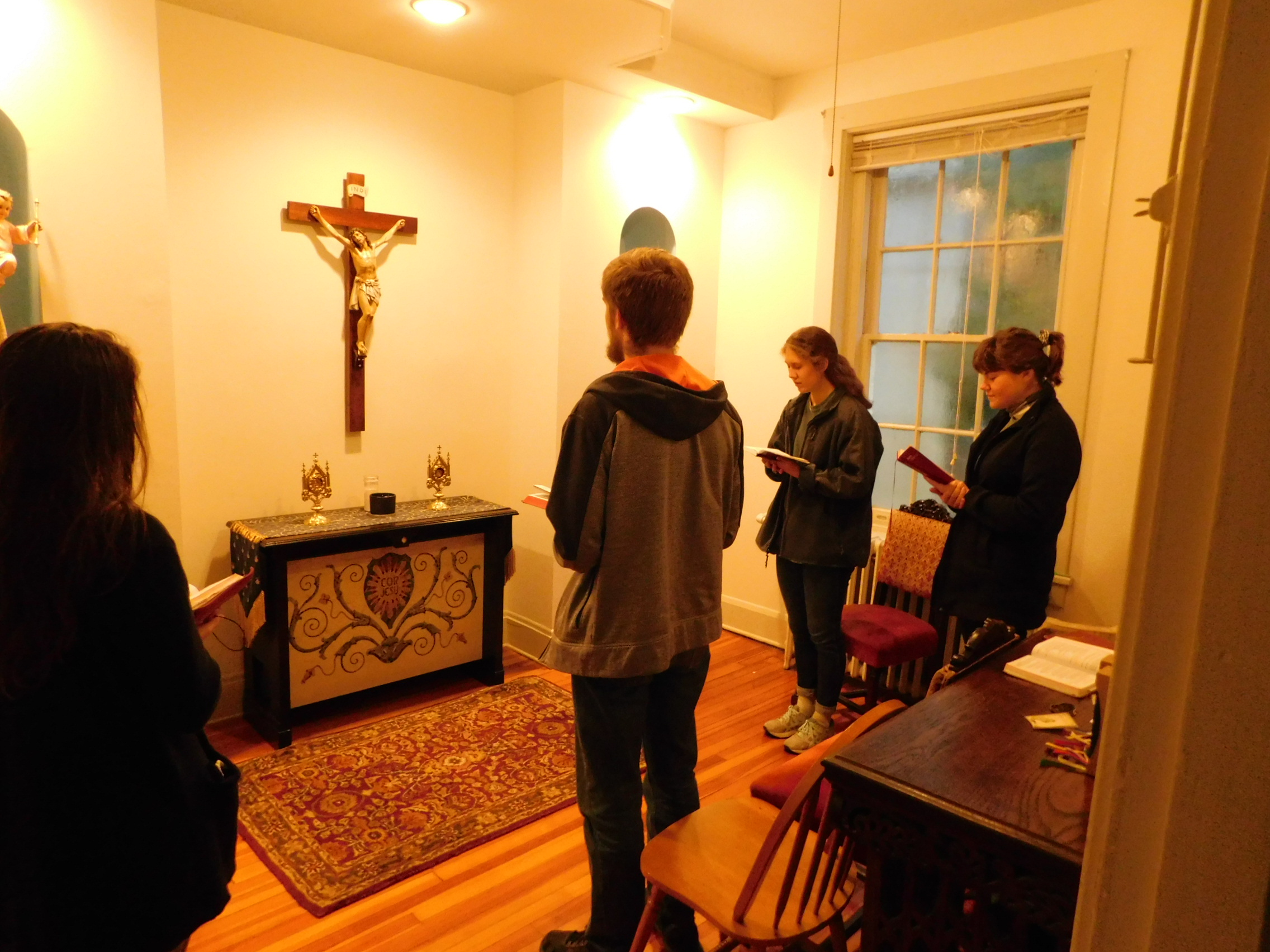
Although the young people are single and lay persons, the life they live is almost like that of vowed religious. Their prayer life is the source of the charity they bring to those most in need. And in Baltimore there’s a lot of need.
According to FBI data released earlier this month, Baltimore is America’s fourth most dangerous city, with a violent crime rate of 1,859 per 100,000 people. In 2019, 348 people in Baltimore were murdered. A Nov. 20 Baltimore Sun article said the city is on track to record at least 300 homicides for the sixth straight year.
The problems of homelessness and drug addiction have worsened significantly over the few years Fr. James Boric has been rector of the basilica. In a recent interview, Fr. Boric pointed to the opioid crisis, the breakdown in the family and an increase in mental illnesses as major contributing factors. Pointing out the window of the basilica gift shop to an alleyway, where a program of Catholic Charities, My Sister’s Place, provides meals, he told a reporter, “There are several women who sleep right there, and all over, including the bus stop across the street, sometimes on the stoop of our steps. All over.”
Another pastor in town, Benedictine Fr. Paschal Morlino of St. Benedict’s, reported that on many street corners like the one Charley occupies, there are upwards of four “shifts” a day, with people desperate for any donations drivers can offer them.
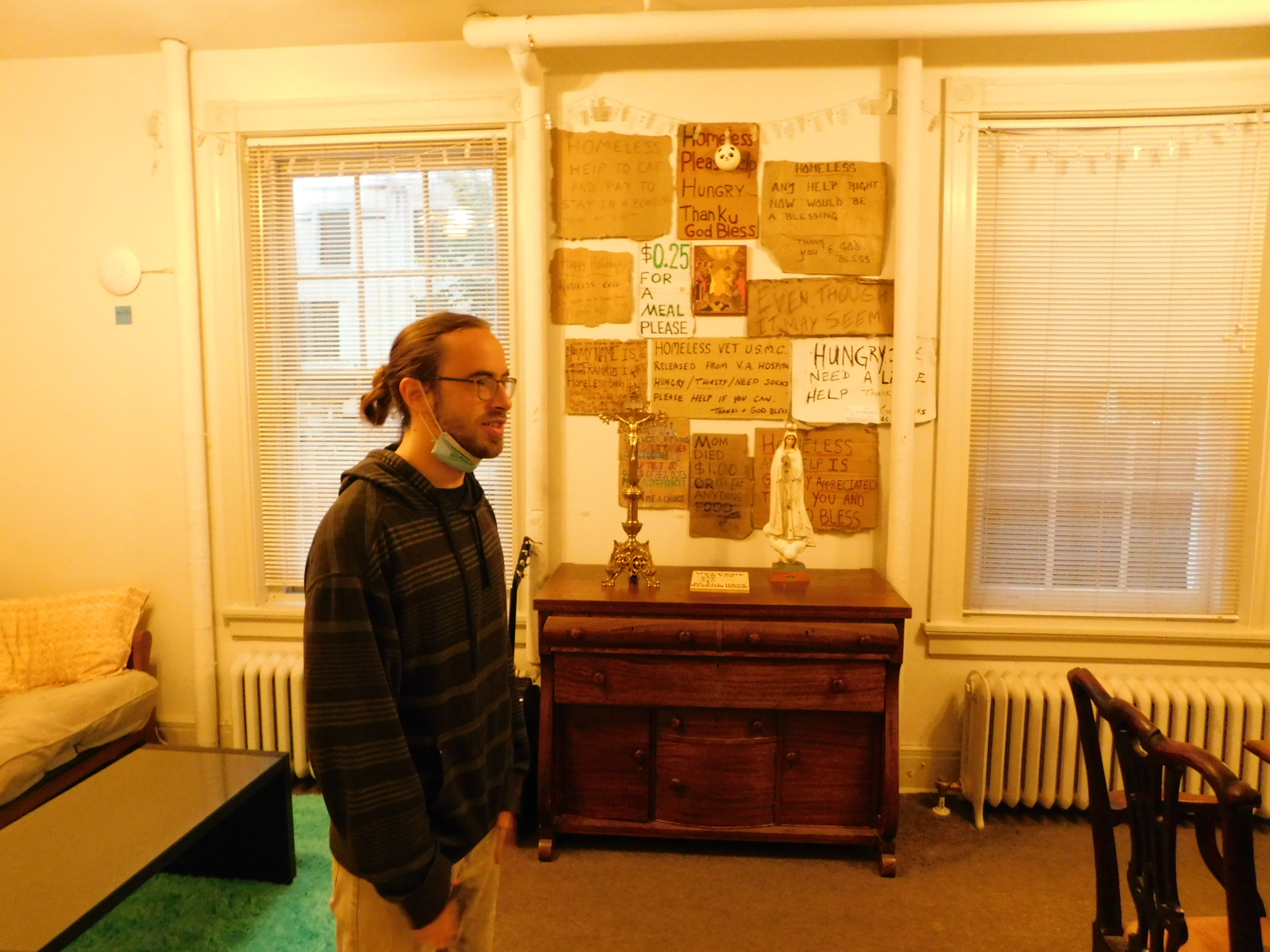
The situation cries out for a response, and the Church feels the need to offer one. But how? And what kind of response?
“The idea for any true Christian is, first you have to receive divine love” before one can help others, said Fr. Boric. “We do that, of course, physically in the sacramental life; we encounter Jesus physically, and of course spiritually. And from that love which he gives us, we have to take that to our neighbor. And in Baltimore City, a lot of my neighbors are homeless and addicted.”
Inspired by a program in Denver known as Christ in the City, Fr. Boric asked Archbishop William E. Lori of Baltimore for permission to transform the former basilica convent into a base for such an outreach. He then began to invite and train young people who were serious about growing in the faith and offering their lives in service.
Source of All Hope was officially launched on the Feast of the Assumption in 2019.
It is not merely a charity program. In fact, although the missionaries carry backpacks with water and socks — which can be a good way to break the ice with people on the street — the primary purpose of Source of All Hope is not to bring material assistance to people. The missionaries can and do put homeless people in touch with agencies that can help them in that way, but their primary aim is to help people on the street recover their humanity.
But it has to start with the missionaries.
“Source of All Hope is a formation program, first and foremost,” Fr. Boric explained. “It’s a program to form young people — millennials– into great disciples. That’s the real work. The fruit of that is their going out to the streets of Baltimore. So every single day, they pray the Mass. Every single day, they’re making aholy hour in front of the Eucharist. Every single day they’re praying the Rosary, morning prayer, evening prayer.”
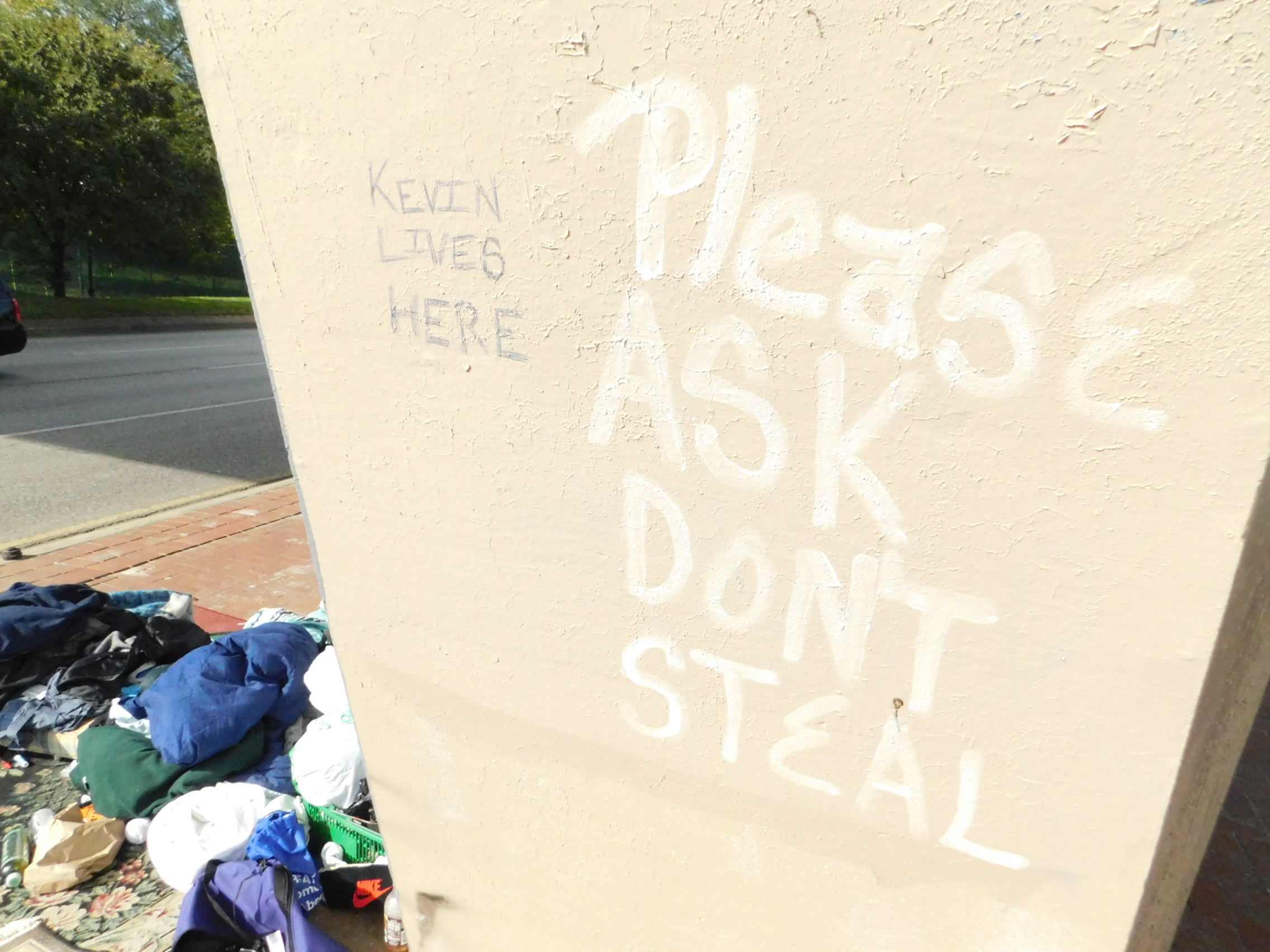
The “street walks” take place three or four times a week. The missionaries, who commit to serve for one year, have mapped out four routes, so they have a built-in regularity, helping them to get to know people along the way. They get to know their names and backgrounds and listen to their stories, hopes, fears and needs.
“We’ve already built up a relationship with them,” said Miller. “We know them as friends. And really, all we’re doing is making friends with these people, and asking the Holy Spirit to come into these conversations. We place a strong emphasis on the relationship and believe that the relationship can be a catalyst for real change. We see that happening.”
A connection with other human beings is something that is missing in the lives of so many people out on the streets, Miller said. One of the major reasons for homelessness is ruptured relationships.
“Imagine if you were to fall on hard times, you’d have different friends or family who would at least be able to put you up for a little bit,” he said. “These men and women have exhausted those relationships; they’ve experienced a lot of abandonment, rejection, … [so] they then choose the isolation of the streets.”
He pointed out that Mother Teresa of Calcutta spoke of being unloved and uncared for as the greatest poverty. “It’s a reality you really see, walking down the street. That’s typically what a lot of our friends will say is the greatest source of their suffering — that isolation, in the sense that they’re kind of just cast out as less than human, sometimes. … What we’re doing is kind of like addressing their deeper needs.”
By focusing on friendship, the missionaries hope to model what authentic friendship and healthy relationships look like. “We’re able to connect with them in ways that are going to be able to rewrite some of the lies that have been etched into their hearts,” Miller said.
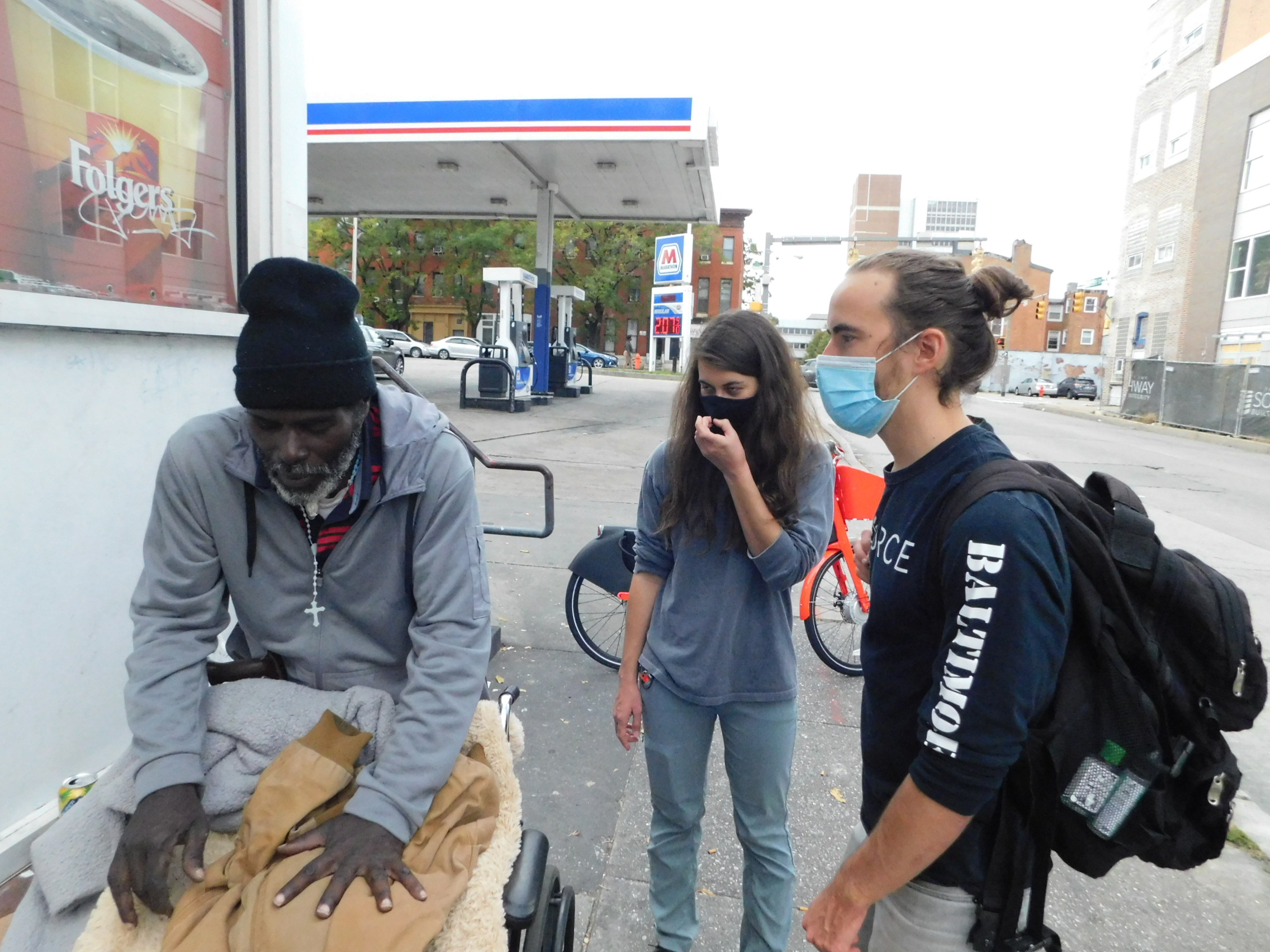
That’s not always easy, as the missionaries will attest.
“One day you might visit someone, and they have a beautiful personality, and they’re sober that day, and you have the best conversation,” said Caroline Boudreaux, 23, a missionary from Florida. “You might make a plan with them, saying, ‘Let’s meet here and hang out,’ and you get there the next day and they’re high out of their minds.”
For Boudreaux and others, that’s why the Christian formation is important.
The year in Baltimore is “teaching me a lot about how God sees us. Your love for that friend doesn’t go away,” she said. “And God’s love and his persistence doesn’t go away. I’m no different. I might go back to my vices. And he still loves me.”
But there are times for rejoicing as well. Miller befriended someone in April, and recently the man was able to go back home to his family.
“Reconnecting someone to go back with their family or encouraging someone to go into rehab and praying with them before rehab,” Boudreaux said, “these are some of the fruits.”
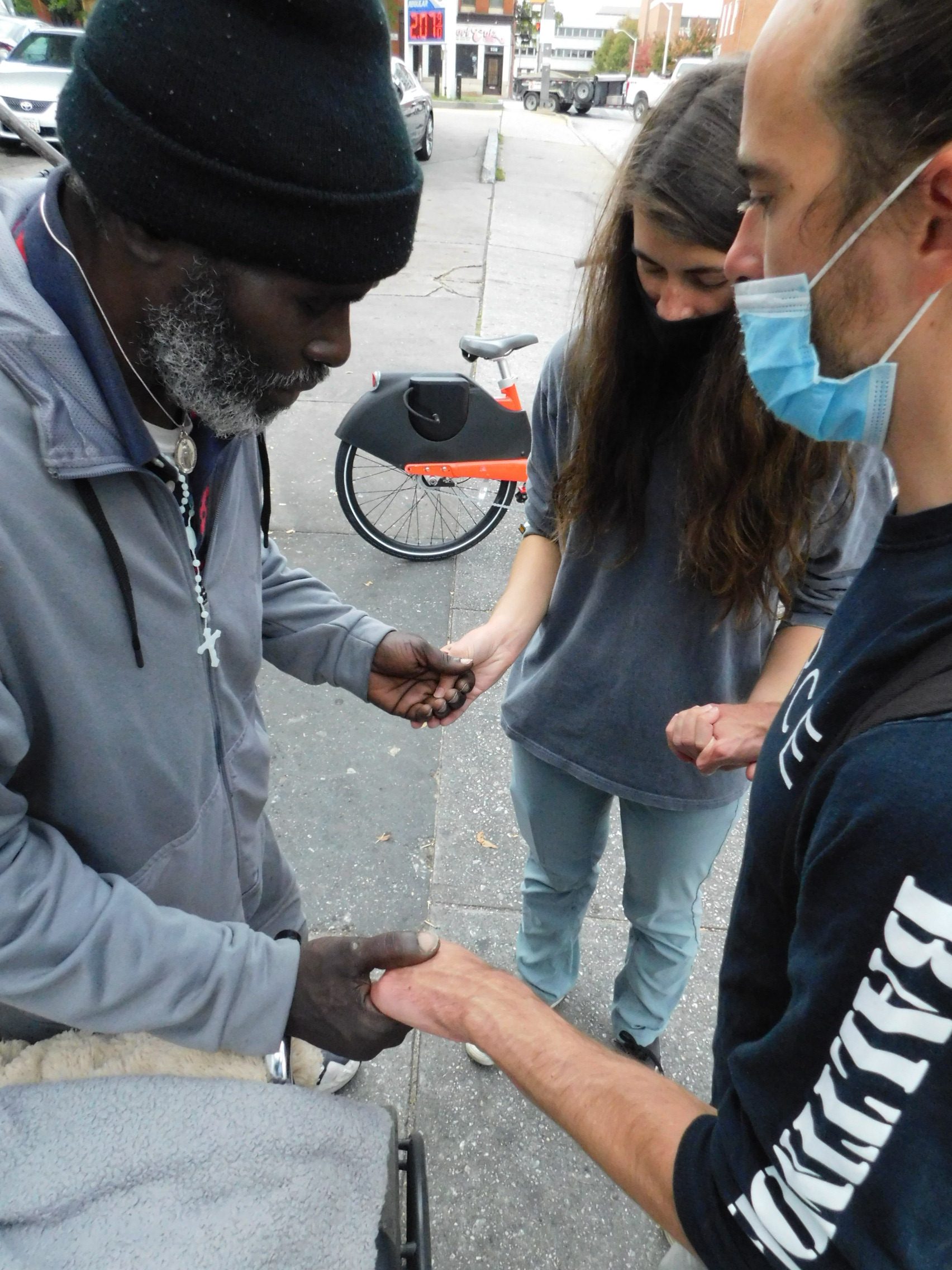
Miller isn’t reticent to talk about his hope to foster another kind of connection.
“Winning souls for Christ is ultimately what we want to do,” he said. “We’ve talked with a lot of men and women who have expressed interest in coming back to church. The challenge is how to integrate their lives on the street with some of the different things that are going on in the church.”
That’s one reason why missionaries have been inviting people to attend a Bible study class, as well as a young adult social gathering at the basilica. And at times, Fr. Boric accompanies the missionaries on their walks and hears some curbside confessions.
“If the City of Baltimore is going to change, it needs Christ,” the priest said. “The only real solution to racism, violence, drug use and broken families is Jesus Christ.”
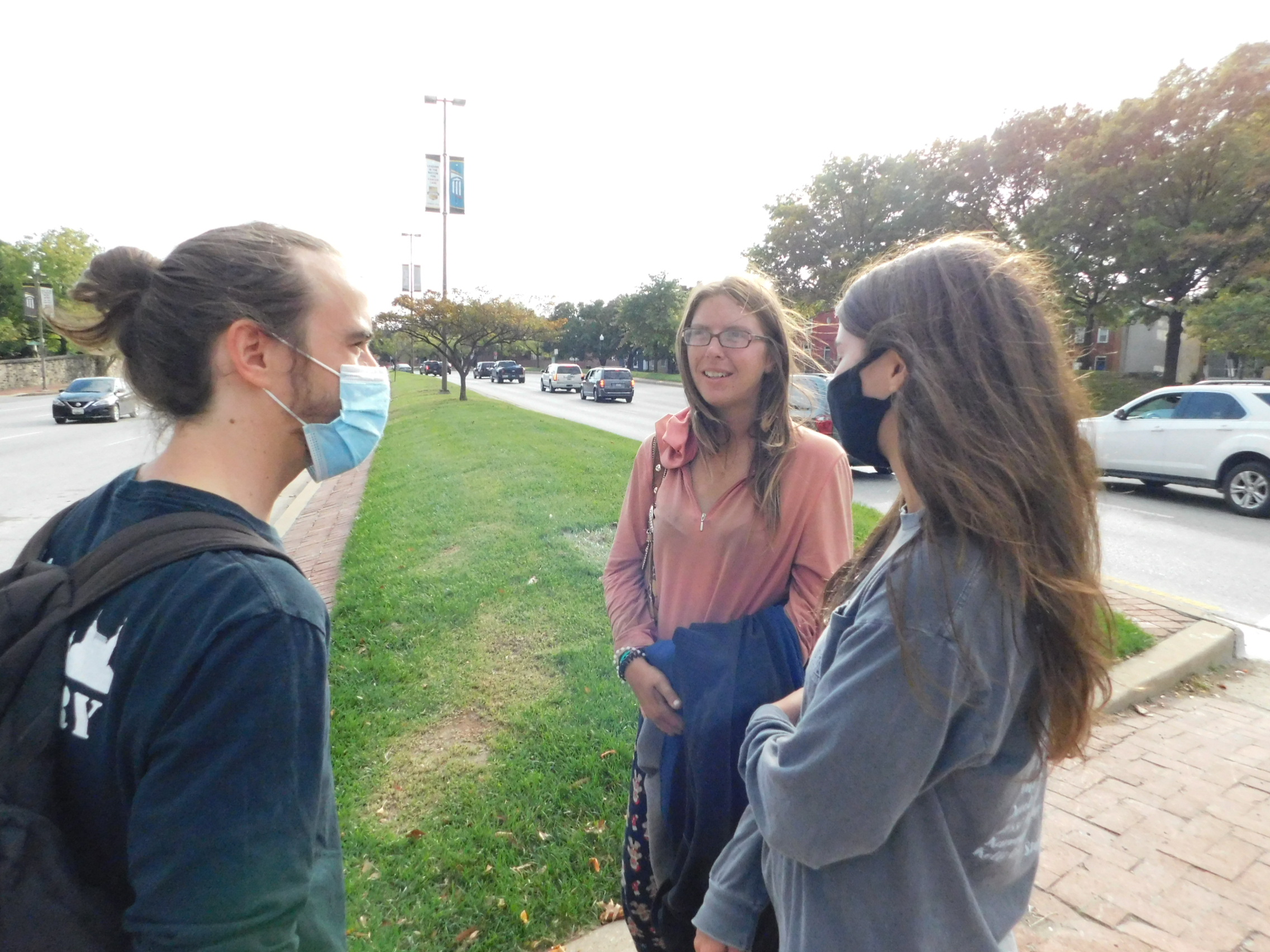
Speaking of the reaction from parishioners and young adults who come to the basilica, Miller commented, “I’ve been amazed at how excited people are about Source. People are stoked to see that the Church is willing to get its hands dirty and go out and serve Christ’s people, bridging the gap that sometimes exists. You know, you have the social justice camp and then you have the liturgy camp. People think that they’re opposed. What we’re trying to say is: No, they’re together, they should complement one another. Both of those are needed.’
“That was the original vision of the Gospel,” Miller said. “We’re just trying to live it out.”
